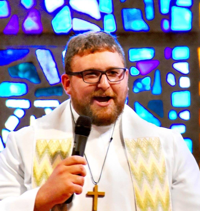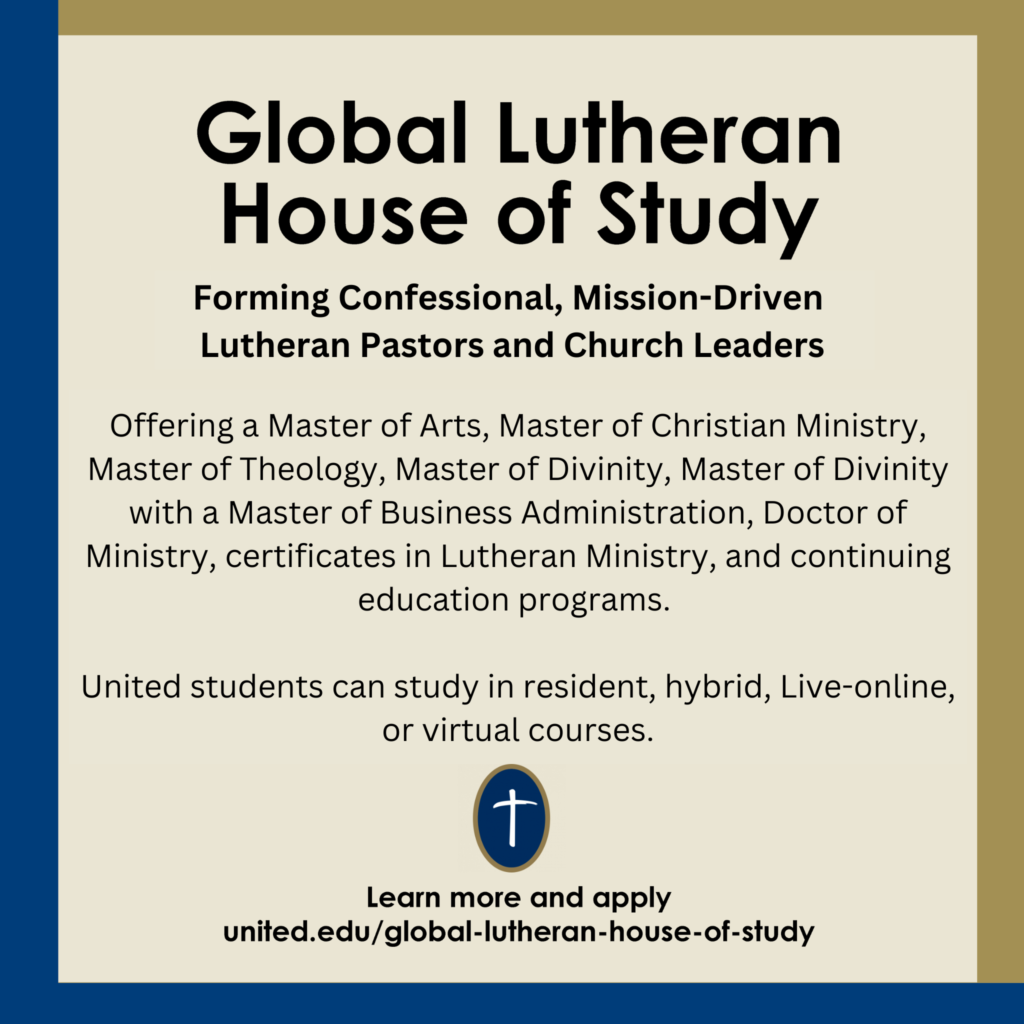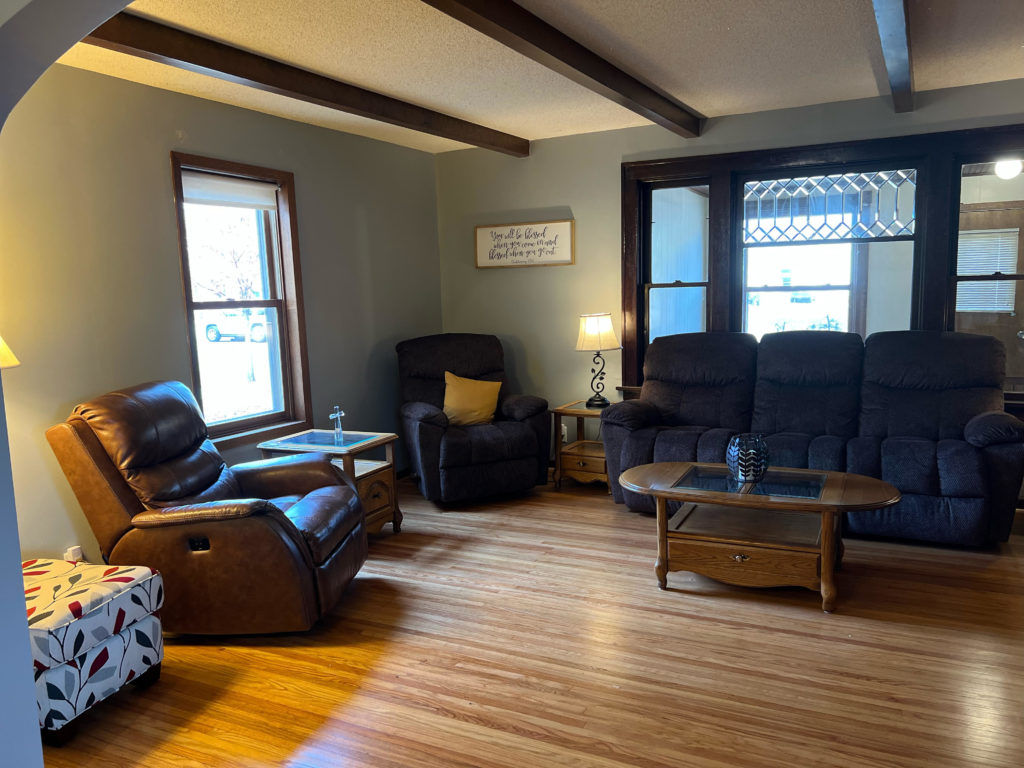In my letter from the director for December 2022 I wrote about several concerns that arose in my mind as I read a November 16 news release from the ELCA about the November 10-13 meeting of the ELCA Church Council. A link to that letter can be found here. In that letter I said that I would be writing to Imran Siddiqui, vice president of the ELCA, who also serves as chair of the church council. I would be asking him how it was decided that a representative from ReconcilingWorks would become an advisory member of the church council and whether any consideration would or had been given to having a representative from a group with traditional views as an advisory member of the church council. Here is the letter which I sent him the morning of December 13. Please note that I also expressed my concern that the ELCA would be committing a massive breach of trust if in the revised human sexuality social statement traditional views on same sex relationships were no longer seen as valid and legitimate and having a place of respect within the ELCA.
Dear Mr. Siddiqui –
Congratulations on your election and thank you for your ministry of leadership within the ELCA. I believe that Presiding Bishop Elizabeth Eaton was absolutely correct – as was described in the November 16 ELCA news release – when she drew attention to the “substantial work charged to the (ELCA Church Council) by the 2022 Churchwide Assembly” and when she said that the work done by the Council now will “have a significant effect on this church.”
I am writing because of my deep concern over two of the bullet points under the section entitled “In other actions” in the November 16 news release regarding the recent meeting of the Church Council.
Under the second bullet point it says that the Church Council has “scheduled for 2024 the initiation of a task force for reconsideration of the social statement Human Sexuality: Gift and Trust.”
I know that this process, as directed by the 2022 Churchwide Assembly, will include a reconsideration of the whole concept of bound conscience. I realize that those who all along have been driving for the elimination of bound conscience were correct in determining that the time had come when they would have more than enough support to pass this kind of a motion, but still, if this action is taken and the provision for bound conscience is eliminated, it will be nothing less than a massive breach of trust on the part of the ELCA against those within its community who hold traditional views. It will call into question whether the ELCA can be trusted on anything if it cannot be trusted to keep this promise to honor traditional views and those who hold them. This is a promise the ELCA made in order to gather enough support to get the social statement approved. Eliminating bound conscience will call into question the ELCA’s claim to have the moral integrity and authority to criticize other organizational entities for not keeping their promises – such as the way the ELCA criticizes the U. S. government for not keeping its promises to Indigenous persons – if the ELCA does not keep its promises.
And then under the sixth bullet point it says that the Council “adopted a continuing resolution establishing council advisory members to include . . . a representative of Reconciling Works.”
As I understand it, until and unless it is revised and/or replaced, the 2009 Human Sexuality: Gift and Trust social statement still represents the ELCA’s official position and policy on same sex relationships. This document describes four positions, which people within the ELCA hold “with conviction and integrity” (p. 20). It states, “This church, on the basis of ‘the bound conscience,’ will include these different understandings and practices within its life as it seeks to live out its mission and ministry in the world” (p. 19).
At this time traditional views on same sex relationships are still recognized as legitimate and valid and having a place within the ELCA. Therefore, why is there not also consideration being given to having a representative from a group with traditional views as one of the advisory members of the Church Council?
If the Church Council were to say that there are just too few people remaining within the ELCA who hold traditional views to have an advisory member with traditional views, then I would see the Council as doing two things. First, it is totally discounting a significant percentage of the actual membership of ELCA congregations. Second, it is ignoring, dismissing, and marginalizing those whom it sees as too small and/or too weak and insignificant a minority, and it is doing so even as the ELCA is constantly and sharply criticizing those whom it accuses of ignoring, dismissing, and marginalizing vulnerable, oppressed minorities.
I also wonder how it was decided that the Church Council would have advisory members, what will be the role and limitations of the role of advisory members, and how it was decided that a representative of Reconciling Works would be one of the advisory members.
I deeply appreciated the response you gave in the ELCA Clergy Facebook group when someone claimed that you had said that Robert’s Rules are oppressive and racist. Because of your response in that situation, I have great hope that you will be a voice for fairness, reason, good sense, and balance.
I look forward to your response.
Blessings in Christ,
Dennis D. Nelson
Executive Director of Lutheran CORE
Retired ELCA Pastor – rostered in the Grand Canyon Synod
That evening I received his response.
Pastor Nelson,
Thank you for your email and expressing your views and concerns. Please allow me to respond to each of your two concerns in order. Regarding the reconsideration of the social statement Human Sexuality: Gift and Trust. The vote of the 2022 Churchwide Assembly was overwhelmingly in support of reconsideration of the social statement. The Church Council is the interim legislative body of the Church between Churchwide Assemblies and is mandated to carry out the wishes of the Churchwide Assembly. The task force would be charged with bringing recommendations on the basis of the approved assembly actions to a future Churchwide Assembly. At that time, that Churchwide Assembly may approve or reject those recommendations. At the November 2022 meeting, the Church Council received the proposal for an editorial reconsideration to be considered first for the human sexuality social statement and then the task force would consider the bound conscience question.
Regarding Church Council Advisory Members, the advisory members were intended to give voice to those who have been historically marginalized within the Church. This allows those groups to have voice, but not vote, in Church Council decisions. This is especially necessary in actions that affect those who have been historically marginalized in our Church. For that reason representatives from ELCA Ethnic Specific Associations and a representative from Reconciling Works were named as Advisory Members to Church Council.
Thank you again for sharing your concerns,
Imran Siddiqui
Vice President
Evangelical Lutheran Church in America
* * * * * * * *
I can think of four things to say in response to his response.
First, I did receive a response, and in a very timely way – within just few hours.
Second, the ELCA feels totally empowered to do what it is doing.
Third, the ELCA sees itself as having no reason to do anything other than what it is doing and no reason to consider any other views.
Fourth, the ELCA is only concerned for those whom it describes as “historically marginalized.” It has absolutely no concern for those who are currently being marginalized. And that total lack of concern is in spite of all that the “currently marginalized” have done in the life of the ELCA and its predecessor church bodies.



















